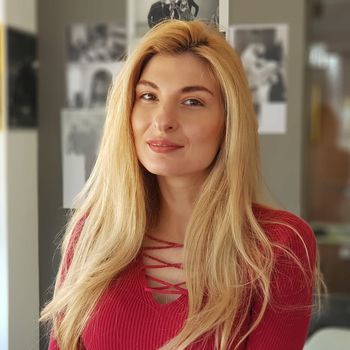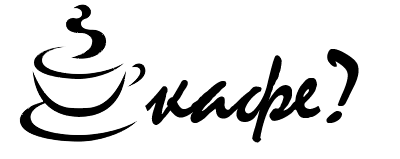Съдят швейцарска банка за пране на пари от българската наркомафия, водена от бивш борец
Искането е предявено след 14-годишно разследване на предполагаемия провал на кредитора да предотврати прането на пари от българска група за наркотици
Швейцарски федерален прокурор твърди, че българската наркомафия е депозирала около 55 милиона франка в Credit Suisse.
В тази връзка държавата иска над 42 милиона франка (40 милиона евро) като обезщетение от Credit Suisse Group AG. Искането е предявено след 14-годишно разследване на предполагаемия провал на кредитора да предотврати прането на пари от българска група за наркотици.
Федералният наказателен съд на Швейцария разкри обвиненията в документ от 500 страници, в който се твърди, че банката страда от „сериозни организационни недостатъци“ в предотвратяването на прането на пари, според доклад, публикуван в неделя от SonntagsZeitung.
Швейцарският федерален прокурор твърди, че българската наркомафия, водена от бивш борец, е депозирала около 55 милиона франка в Credit Suisse. Голяма част от тях са били ръчно доставени в куфари, пълни с разопаковани банкноти, според доклада. Федералният прокурор също се насочи към бивша служителка на Credit Suisse за ролята й в аферата.
Банката заяви, че „отхвърля като безпочвени всички обвинения по този въпрос и е убедена, че бившата й служителка е невинна“, според изявление, изпратено по имейл. "Банката ще се защитава енергично в съда."
Въпросният случай е последния удар за изпадналата в затруднение банка, която наскоро обяви, че ще отдели допълнителни 500 милиона франка тази година за съдебни спорове.
Credit Suisse все още е разклатена от големи загуби, свързани с колапса на Archegos Capital Management и Greensill Capital.





 Израел заглушил охраната на Хаменей, преди да го убият
Израел заглушил охраната на Хаменей, преди да го убият

 Москва и Киев си размениха по 200 военнопленници
Москва и Киев си размениха по 200 военнопленници

 Само 12 от над 7000 жалби за високи сметки за ток са уважени
Само 12 от над 7000 жалби за високи сметки за ток са уважени


 По иранската телевизия: Аятолах призова за "проливане на кръв" от Тръмп и израелци
По иранската телевизия: Аятолах призова за "проливане на кръв" от Тръмп и израелци

 Министър Янкулов: Ограничението от 6 месеца за и.ф. главен прокурор не е в разрез с Конституцията
Министър Янкулов: Ограничението от 6 месеца за и.ф. главен прокурор не е в разрез с Конституцията

 „Казино дьо Пари“ – храмът на мюзикхола
„Казино дьо Пари“ – храмът на мюзикхола

 ГДБОП разби секс ОПГ, има 8 арестувани (СНИМКИ)
ГДБОП разби секс ОПГ, има 8 арестувани (СНИМКИ)

 Сънната апнея – източник на неочаквани здравословни проблеми за мъжете
Сънната апнея – източник на неочаквани здравословни проблеми за мъжете

 Анджелина Джоли не е имала романтична връзка след развода с Брад Пит
Анджелина Джоли не е имала романтична връзка след развода с Брад Пит

 Ангелина Бонева отказва да подаде оставка, върна се в кабинета си в МРРБ
Ангелина Бонева отказва да подаде оставка, върна се в кабинета си в МРРБ

 Кои зодии ги очаква нова страстна връзка през март
Кои зодии ги очаква нова страстна връзка през март


































There is a firm rock in this ocean of adaptation and reconfiguration: the narco-broker, who coordinates agreements between the various supply chain links and helps reduce mistrust between the groups that participate in this lucrative business.
In the case of fumigations, captures or killings, the broker can reconfigure the network which facilitates the drug trafficking flow. The broker is the element which is most difficult to replace because he or she features three characteristics that are scarce in illegal businesses: trustworthiness, reliability and strong networking skills.
First, the narco-broker’s trustworthiness is crucial to maintain the links. As he/she tends to be the only direct contact with the groups, he/she is responsible for reducing the risks of detention or death for those involved in the drug deals. Yet these deals are by no means legally binding; the possibility of cheating and betrayal is omnipresent, which makes trustworthiness a characteristic that is hard to find. Megateo, a wanted narco-broker of Eastern Colombia, is one of the few exceptions. During my travels in Colombian Catatumbo many people told me that he is perceived to comply with what he says. Therefore, he not only successfully manages the arrangemens with the three Colombian rebel groups FARC, ELN and EPL, but is also appreciated by the community.
Second, in order for the narco-deals to materialise, the broker has to be perceived as a reliable business parter by all parties involved. A reputation of a “good broker” over many years confers him/her the credibility that is necessary to succeed in the illicit business. Given the quickly changing nature of the drug business, it is difficult to find people with many years of experience in the cocaine industry: often, narco brokers do not even reach the age of 30, making it difficult to fill the void left by a captured or killed broker. This is perhaps why the capture of Colombian brokers “Loco Barrera” in September 2012, and “Marquito Figueroa” in October 2014 were portrayed by the media as major blows against the illegal drug business.
In the case of fumigations, captures or killings, the broker can reconfigure the network which facilitates the drug trafficking flow. The broker is the element which is most difficult to replace because he or she features three characteristics that are scarce in illegal businesses: trustworthiness, reliability and strong networking skills.
First, the narco-broker’s trustworthiness is crucial to maintain the links. As he/she tends to be the only direct contact with the groups, he/she is responsible for reducing the risks of detention or death for those involved in the drug deals. Yet these deals are by no means legally binding; the possibility of cheating and betrayal is omnipresent, which makes trustworthiness a characteristic that is hard to find. Second, in order for the narco-deals to materialise, the broker has to be perceived as a reliable business parter by all parties involved. A reputation of a “good broker” over many years confers him/her the credibility that is necessary to succeed in the illicit business. Given the quickly changing nature of the drug business, it is difficult to find people with many years of experience in the cocaine industry: often, narco brokers do not even reach the age of 30, making it difficult to fill the void left by a captured or killed broker. This is perhaps why the capture of Colombian brokers “Loco Barrera” in September 2012, and “Marquito Figueroa” in October 2014 were portrayed by the media as major blows against the illegal drug business.
Finally, the narco-broker needs to have a large network of contacts because his/her function is to connect and reconnect the supply chain links without jeopardising the business, even if one of the links breaks off. Like an octopus which has its tentacles in many parts, the narco-broker has connections which extend vertically to penetrate all classes of society and, horizontally to all sectors including politics. As a neighbourhood leader in Cúcuta, Colombia, explained to me, it was not without reason that the suspect of being an important narco-broker in the region, who was assassinated in April 2012, was called “The Octopus”.
Having networks across different sectors and classes of society requires skills of versatility and adaptation that few people possess.